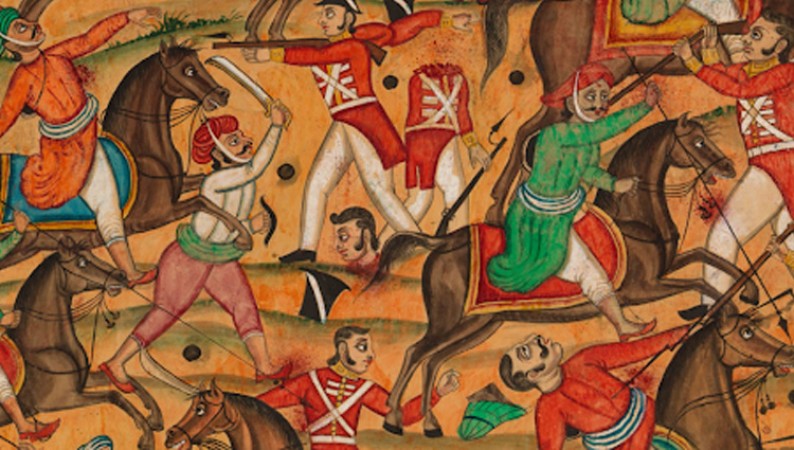
This Day in History: On August 27, 1781, the Battle of Pollilur (Pallilore) unfolded near the town of Pollilur, in present-day Tamil Nadu, India. This pivotal engagement marked a significant event during the Second Anglo-Mysore War between the British East India Company and the forces of Hyder Ali, the ruler of the Kingdom of Mysore. Led by Hyder Ali's strategic brilliance, the Mysorean army clashed with the British forces under Colonel William Baillie. The battle showcased Hyder Ali's military acumen and ultimately resulted in a significant British defeat, altering the dynamics of the war and leaving a lasting impact on the historical narrative of British colonial expansion in India.
The Battle of Pollilur (Pallilore) - August 27, 1781
The Battle of Pollilur was a significant engagement that occurred during the Second Anglo-Mysore War between the forces of Hyder Ali, the ruler of the Kingdom of Mysore in southern India, and the British East India Company. The battle took place near the town of Pollilur (now called Pullalur), located in present-day Tamil Nadu, India.
Context and Background:
By the late 18th century, the British East India Company had established a strong presence in India, engaging in various conflicts to expand its territories and influence. One such conflict was the Second Anglo-Mysore War (1780–1784), which primarily pitted the British against Hyder Ali, a formidable ruler who aimed to counter British expansion in the region.
The Battle: In the midst of the war, the Battle of Pollilur unfolded on August 27, 1781. Hyder Ali, known for his strategic acumen and military prowess, led his Mysorean forces against the British under the command of Colonel William Baillie. Hyder Ali's army included a mix of infantry, cavalry, and artillery, which he deployed effectively on the battlefield.
The battle began with a fierce attack by Hyder Ali's forces on the British positions. The Mysorean cavalry, in particular, executed skilled maneuvers to disrupt the British lines and create chaos. Despite their initial resistance, the British forces found themselves overwhelmed by the coordinated assault and the superiority of Hyder Ali's military strategy.
As the battle raged on, the British forces suffered heavy casualties and were eventually surrounded. The Mysoreans' effective use of artillery played a crucial role in tipping the balance in their favor. This forced the British to surrender, and Colonel William Baillie, along with a significant portion of his troops, was taken captive by Hyder Ali's forces.
Aftermath: The British defeat at the Battle of Pollilur was a major setback for them in the Second Anglo-Mysore War. The loss of a significant portion of their forces and the capture of Colonel Baillie dealt a blow to their military reputation and further emboldened Hyder Ali's position in the conflict.
However, the battle did not lead to an immediate collapse of British power in India. The war continued for several more years, with fluctuating fortunes on both sides. Eventually, the war concluded with the Treaty of Mangalore in 1784, which restored most territories to their pre-war status quo.
Legacy: The Battle of Pollilur remains notable as a demonstration of Hyder Ali's tactical brilliance and military capabilities. It highlighted the challenges the British East India Company faced in maintaining control over their Indian territories and the resilience of local rulers like Hyder Ali.
In modern times, the battle is often studied for its historical significance within the context of British colonial expansion and the complex interactions between European powers and indigenous rulers in India.